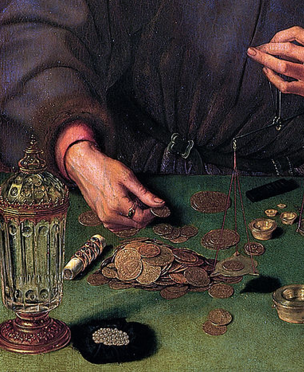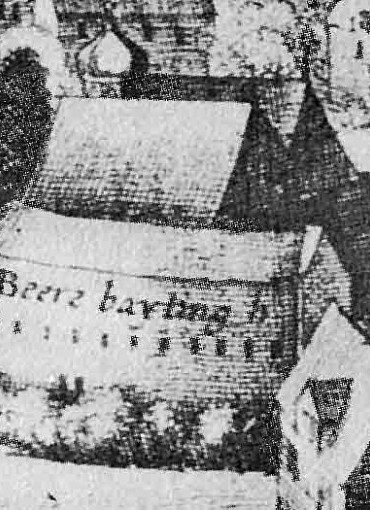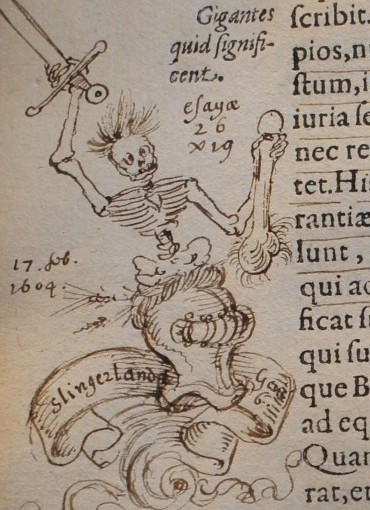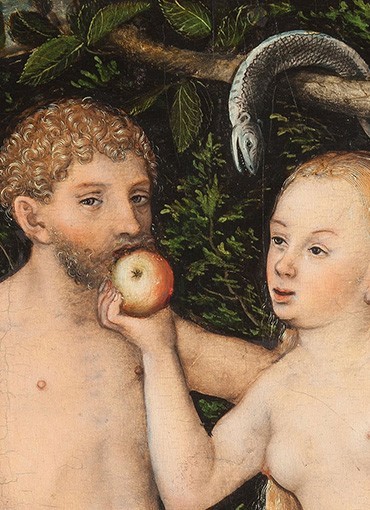
Graham Storey Room, Trinity Hall
 This two-day colloquium will explore ideas of change and exchange – and their implicit interrelation – across various early modern domains engaged with ways of knowing. It will put pressure on the wider notion of ‘economy’ itself and how it inflects our knowledge, management and articulations of the world. Using literary interventions and imaginative representations as a point of entry, these ‘exchanges’ will probe the dialogue between the period’s economic thinking and practices on the one hand, and the calculus of emotional and imaginative lives on the other. Day 1 will concentrate on economies of transformation across theology, law, literature and the aesthetics of representation; Day 2 will focus mainly on the cross-overs between the technologies of change in the market-place, and transactions in the sphere of cultural production.
This two-day colloquium will explore ideas of change and exchange – and their implicit interrelation – across various early modern domains engaged with ways of knowing. It will put pressure on the wider notion of ‘economy’ itself and how it inflects our knowledge, management and articulations of the world. Using literary interventions and imaginative representations as a point of entry, these ‘exchanges’ will probe the dialogue between the period’s economic thinking and practices on the one hand, and the calculus of emotional and imaginative lives on the other. Day 1 will concentrate on economies of transformation across theology, law, literature and the aesthetics of representation; Day 2 will focus mainly on the cross-overs between the technologies of change in the market-place, and transactions in the sphere of cultural production.
This event is part of the research project, Crossroads of Knowledge in Early Modern England: the Place of Literature, a five-year ERC-funded project based at the Faculty of English and CRASSH, University of Cambridge.
Convenors:
Rachel E. Holmes, Subha Mukherji, Tim Stuart-Buttle, Elizabeth L. Swann
More information, programme and abstracts here.
 Trust Room, Fitzwilliam College
Trust Room, Fitzwilliam College
Conference fee: £25 (full), £10 (students/unwaged) – includes lunch, tea/coffee
Deadline: Monday 12 October 2015
Interdisciplines: Drama, Economics and Law in Early Modern England is a one-day colloquium which seeks to examine intersections between literature, law and economics in early modern England. As part of the broader, European Research Council-funded interdisciplinary project, Crossroads of Knowledge in Early Modern England: the Place of Literature, our speakers will be attentive to the epistemic intersections between drama and economy, drama and law: how did legal, social and economic practices of the time condition Renaissance drama? how did the early modern theatre respond to, and, in turn, shape the legal and economic life of the period? Our speakers are Maria Fusaro (Exeter); Quentin Skinner (QMUL), Becky Tomlin (Birkbeck), and Andy Wood (Durham). Papers will be followed by responses and Q&A sessions. The colloquium ends with a concluding panel chaired by Craig Muldrew.
Rachel E. Holmes, Subha Mukherji, Tim Stuart-Buttle, Elizabeth L. Swann, Koji Yamamoto
Maria Fusaro (University of Exeter)
Quentin Skinner (Queen Mary, University of London)
Rebecca Tomlin (Birkbeck, University of London),
Andy Wood (University of Durham)
Craig Muldrew (University of Cambridge).
Panel Members:
Adrian Leonard (University of Cambridge), others TBC
More information, programme and abstracts here.
Monday 18 May
Oxford Bibliographical Society 5.15pm, Taylor Institution:
Jason Scott-Warren (University of Cambridge) The Archaeology of an Elizabethan Library: Reading Richard Stonley (c. 1520-1600)
Richard Stonley, an Elizabethan exchequer official and the first documented reader of Shakespeare, left two fascinating traces in the archives. The first comprises three volumes of journals covering periods of the 1580s and 1590s; the second is a booklist that was compiled when the contents of Stonley’s house on London’s Aldersgate Street were sold off to defray his alleged embezzlements in office in 1597. This paper will dig into both documents in order to contextualize a highly distinctive early modern library.
Tuesday 19 May
Crossroads of Knowledge Reading Group 2pm-4pm English Faculty S-R19:
The reading group will be looking at Thomas Traherne, contact Tim Stuart-Buttle for more information and some pre-circulated reading material: ts630@cam.ac.uk.
Neo-Latin Reading Group King’s College London, 5.15pm B7:
Maya Feile Tomes (University of Cambridge) The shield of Aeneas in the hands of Christopher Columbus — again. New thoughts on weaponry ekphrasis in the Neo-Latin Columbus epic corpus.
The Neo-Latin subgenre of the Columbus epic – which, just as it says on the tin, is a small collection of (early modern) Neo-Latin poems on the subject of Christopher Columbus’ voyages to America – has recently increased in size from five known examples to six. By the same token, the previously known instances of the intriguing ekphrastic phenomenon that is the American shield ekphrasis (shields depicting visions or quasi-maps of the newly encountered continent), of which there were formerly thought to be just two, now find themselves joined by a third example: one which, at over 150 lines, is indeed by far the longest of them all (and, for that matter, considerably longer than the Shield of Aeneas itself!) and, in many senses, very intriguing. In my talk, I will introduce the new text and its ekphrasis, considering how its ekphrastic representation of America interacts with precedents both classical and ‘Columbian’.
Wednesday 20 May
CRASSH Things That Matter Seminar ARB SG1 from 12.15pm – 2pm: ‘Reproduced Things’
Professor Helen King (Classical Studies, Open University)
The Material Womb In the western tradition of thinking about the body, wombs have not only been illustrated in a variety of shapes, but been made in a variety of materials: ancient terracotta ‘votive wombs’ meet today’s brightly coloured, perky knitted wombs, while eighteenth-century glass wombs give way to nineteenth-century rubber wombs. In this paper, as an aspect of a wider project concerning what has been thought to constitute a body ‘part’, I will consider the colours and materials used for wombs. I shall be arguing that something more than factual knowledge guides the visual representation of the womb, and that taking the long view changes the assumptions we now make, and the questions we put to the past.
Professor Michelle O’Malley (Art History, University of Sussex)
Botticelli and Reproduction In the art historical tradition of thinking about Renaissance painting, we conceptualise pictures as ‘autograph’ and ‘workshop’, admiring the former as, say, a Botticelli, and often denigrating the latter as a slavish and dull copy. But these two strands of production were not divergent: both were outputs of the business of a master painter, and both involved, in varying degrees, the input of the master and his assistants. In this paper, I will consider the production of Botticelli’s ‘workshop’ works, drawing particularly on technical analysis to discuss approaches to the manufacture of these material objects created for the Renaissance home. I will argue that ‘workshop’ work—Botticelli’s re-produced things—represent decisions he made about manufacture in the business and that their construction calls into question some of our most fundamental tools for assessing attribution and understanding how Renaissance painters worked.
London Festival of the Arts Lecture, 5.30pm-7.30pm UCL Roberts G08:
Carole Levin (University of Nebraska) Pregnancy, False Pregnancy, and Questionable Heirs: Mary I and her Echoes
London Renaissance Seminar Room G01, 43 Gordon Square:
6pm – 7:25pm Renaissance Ways of Seeing
How did people ‘see’ in the Renaissance? In this panel discussion Joanne Anderson (Birkbeck) will ask who coloured Mary Magdalen and why it matters, looking particularly at early Renaissance artworks produced in Alpine Italy. Paul Taylor (Warburg Institute) will explore the multivalent idea of ‘imitation’ in relation to life and art in the Renaissance. Stephen Clucas (Birkbeck) will explore the visionary ‘seeing’ (or ‘skrying’) of John Dee’s angelic conversations. Gill Woods (Birkbeck) will investigate how characters went invisible on the Renaissance stage, and what that tells us about theatrical seeing.
7:40pm – 9pm Keeping it in the family: Renaissance writing dynasties?
Kingsley and Martin Amis were not the first. In the Renaissance, a remarkable number of writers (and scholars) belonged to a family double act – most often father and son, or brother and brother, but sometimes father and daughter, or mother and daughter. In a culture in which literature and learning earned new kinds of social prestige, transmitting the craft or vocation of writing from one generation to the next could help achieve social ascent. Why did people write together – was the aim to create dynasties, within which writing was a central plank? Join Professor Neil Kenny (All Souls College, Oxford) to explore how in the French and European Renaissance literature and learning did and didn’t make families a new place in the world.
Thursday 21 May
IHR: Early Modern Material Cultures Seminar 5.30pm, Seminar Room A, V&A South Kensington Research Department, Cromwell Road, London SW7 2R:
Dr Pamela Long (Independent Scholar) Engineering, Topography, and the Culture of Knowledge in Late Sixteenth-Century Rome
Wednesday 6 May
Dr Regina Schwartz, Northwestern University, will be speaking at the Renaissance Graduate Seminar (G-R05, 5.15pm), on ‘The Religious and Secular Renaissance’.
The CRASSH Things That Matter seminar, ‘Containing Things, Containing the Word and Containing the World’, will take place in ARB SG1 from 12.15pm – 2pm. Dr Lucy Razzall (English, Centre for Material Texts, University of Cambridge) will address ‘Containing the Word: Books and Boxes in Early Modern England’. Dr Anne Secord (History and Philosophy of Science, Darwin Correspondence Project) will speak about ‘Containing the World: Boxes, Books, and Botany in late C18th and C19th England’. See their abstracts here.
Thursday 7th – Friday 8th May
The Crossroads of Knowledge colloquium ‘Knowledge, Belief and Literature in Early Modern England’ will be taking place in the Graham Storey Room, Trinity Hall on Thursday and Friday. More information, and the programme and abstracts here.

A colloquium on early modern visual marginalia organised by the Department of History of Art, Trinity Hall, University Library, University of Cambridge.
Sponsored by Department of History of Art, University Library, Centre for Material Texts.
Covenor: Dr Alexander Marr
Programme:
Prof. William Sherman (V&A): ‘Sir Thomas Smith and the eye of history’
Dr Julian Luxford (University of St Andrews): ‘Plus ça change: renaissance and later images in the margins of medieval manuscripts’
Dr Alexander Marr (Cambridge) and Dr Kate Isard (Visiting Scholar, Cambridge): ‘A bit on the side: alchemical and erotic marginalia in Cartari’s Le imagini de i dei delli antichi‘
Dr Richard Oosterhoff (CRASSH, Cambridge): ‘From margins to endpapers: what doodles did in a Renaissance classroom’
Dr Francesco Benelli (Columbia): ‘Architects, readers and visual notation in Renaissance Italy’
For further information please contact Gaenor Moore

Programme, Abstracts and Registration details to follow.
Knowledge, Belief and Literature in Early Modern England is the second colloquium of the Crossroads of Knowledge in Early Modern England: the Place of Literature, a five-year interdisciplinary research project, funded by the European Research Council.
Plenary Speakers
For further information please contact the Crossroads Research Project Administrator.


